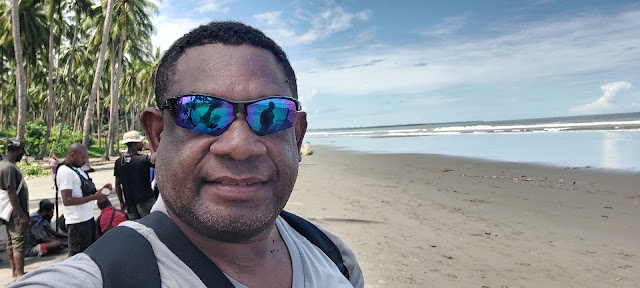U.S. Experts Discuss Assistance to PNG to Reduce Greenhouse Gas Emissions from Land Use
Press Release March 7, 2012
Port Moresby, Papua New Guinea – A team of forestry experts from the U.S. Agency for International Development (USAID) visited Papua New Guinea from February 28 to March 7, 2012 to discuss possible support for projects to reduce greenhouse gas (GHG) emissions and improve forest management in PNG.
The experts are from USAID’s Lowering Emissions in Asia’s Forests (LEAF) program, which applies a science-based approach to reducing GHG emissions and helps build government capacity in Southeast Asia and the Pacific so that countries can better manage their forests.
U.S. Ambassador Teddy Taylor reemphasized that this matter is of considerable importance to Papua New Guinea: the country contains the third largest, intact tract of tropical forest in the world, a stunning resource. Not surprisingly, preserving this vast tract faces challenges from many directions. PNG’s forest currently covers an estimated 28.5 million hectares. It has a combined annual rate of deforestation and degradation estimated at 1.4%[1].
These are comparatively low rates, and the forest cover remains comparatively high: good news for the people of PNG. But even as the value of the forest increases, pressures on it continue to mount rapidly: commercial agriculture, logging, and infrastructure developments are all expanding quickly. Furthermore, new tracts of forest are continually being cleared for subsistence agriculture. While this may offer temporary relief to PNG’s rapidly growing population, clearing the land is often done without appropriate consideration of the full range of environmental, climatic and soil productivity impacts.
The LEAF experts’ discussions will focus on innovations in land management and GHG emission reductions that could help PNG achieve sustainable economic growth. Adopting low carbon strategies and engaging in meaningful and sustained GHG reductions should also help PNG benefit from the emerging international framework for REDD+ (Reducing Emissions from Deforestation and Forest Degradation). While in Port Moresby, the LEAF team met with PNG officials, donor agencies, private sector firms, research institutes, and non-governmental organizations.
Port Moresby, Papua New Guinea – A team of forestry experts from the U.S. Agency for International Development (USAID) visited Papua New Guinea from February 28 to March 7, 2012 to discuss possible support for projects to reduce greenhouse gas (GHG) emissions and improve forest management in PNG.
The experts are from USAID’s Lowering Emissions in Asia’s Forests (LEAF) program, which applies a science-based approach to reducing GHG emissions and helps build government capacity in Southeast Asia and the Pacific so that countries can better manage their forests.
U.S. Ambassador Teddy Taylor reemphasized that this matter is of considerable importance to Papua New Guinea: the country contains the third largest, intact tract of tropical forest in the world, a stunning resource. Not surprisingly, preserving this vast tract faces challenges from many directions. PNG’s forest currently covers an estimated 28.5 million hectares. It has a combined annual rate of deforestation and degradation estimated at 1.4%[1].
These are comparatively low rates, and the forest cover remains comparatively high: good news for the people of PNG. But even as the value of the forest increases, pressures on it continue to mount rapidly: commercial agriculture, logging, and infrastructure developments are all expanding quickly. Furthermore, new tracts of forest are continually being cleared for subsistence agriculture. While this may offer temporary relief to PNG’s rapidly growing population, clearing the land is often done without appropriate consideration of the full range of environmental, climatic and soil productivity impacts.
The LEAF experts’ discussions will focus on innovations in land management and GHG emission reductions that could help PNG achieve sustainable economic growth. Adopting low carbon strategies and engaging in meaningful and sustained GHG reductions should also help PNG benefit from the emerging international framework for REDD+ (Reducing Emissions from Deforestation and Forest Degradation). While in Port Moresby, the LEAF team met with PNG officials, donor agencies, private sector firms, research institutes, and non-governmental organizations.


Comments